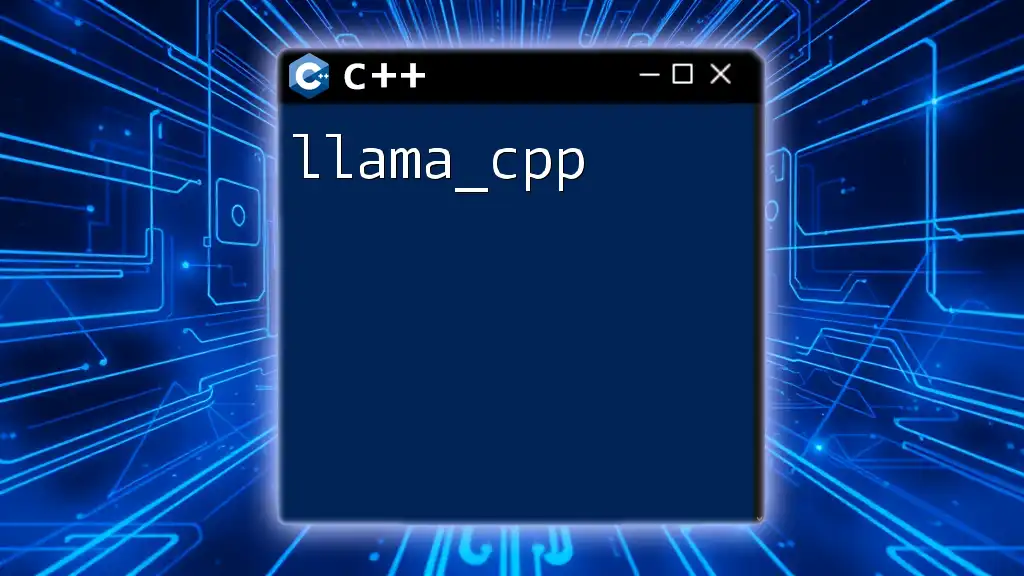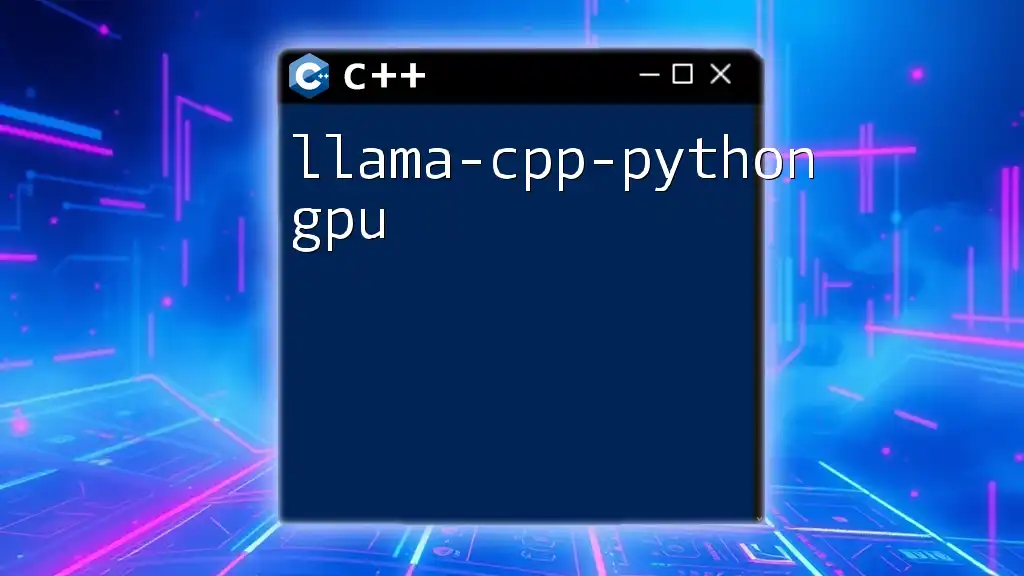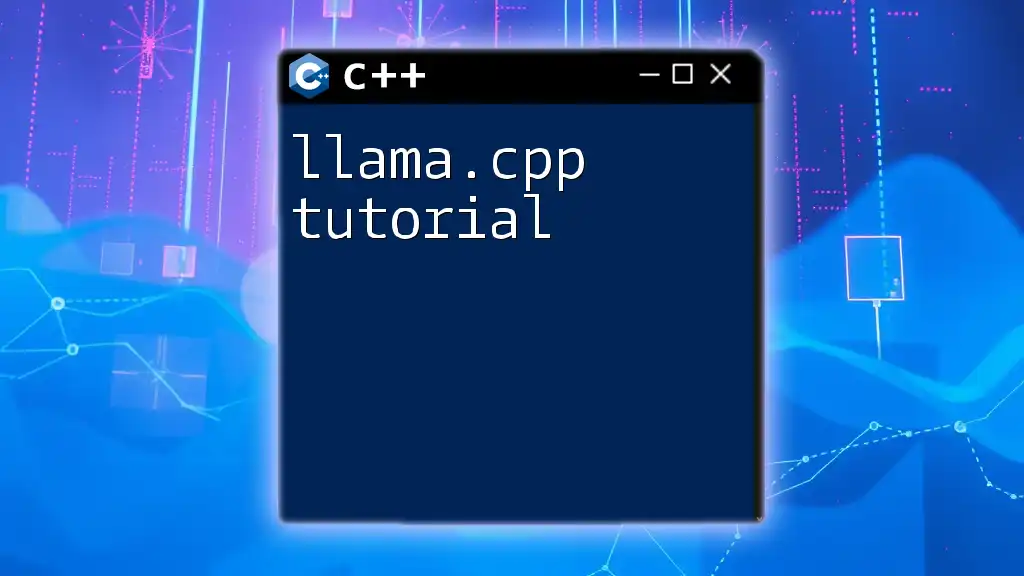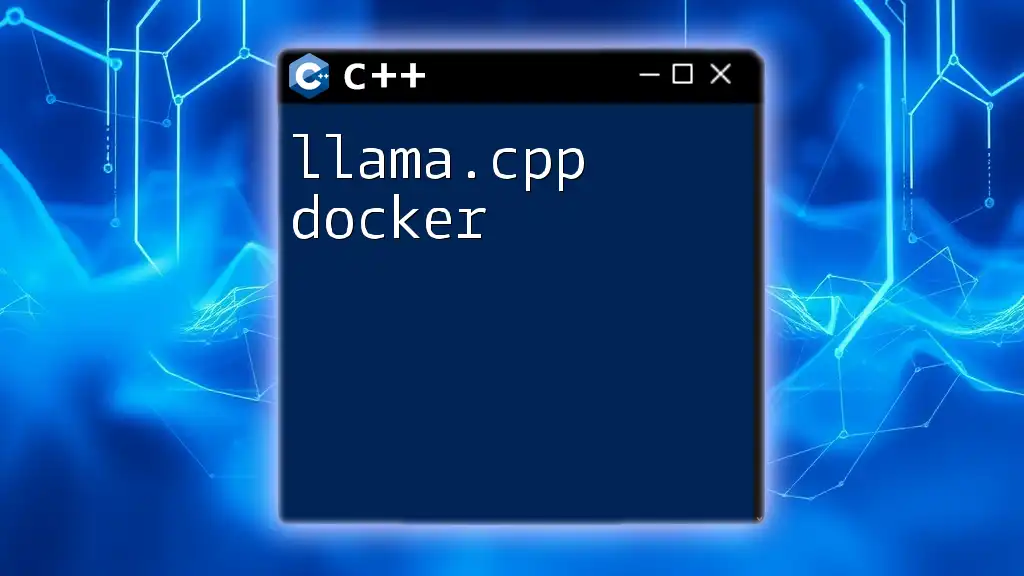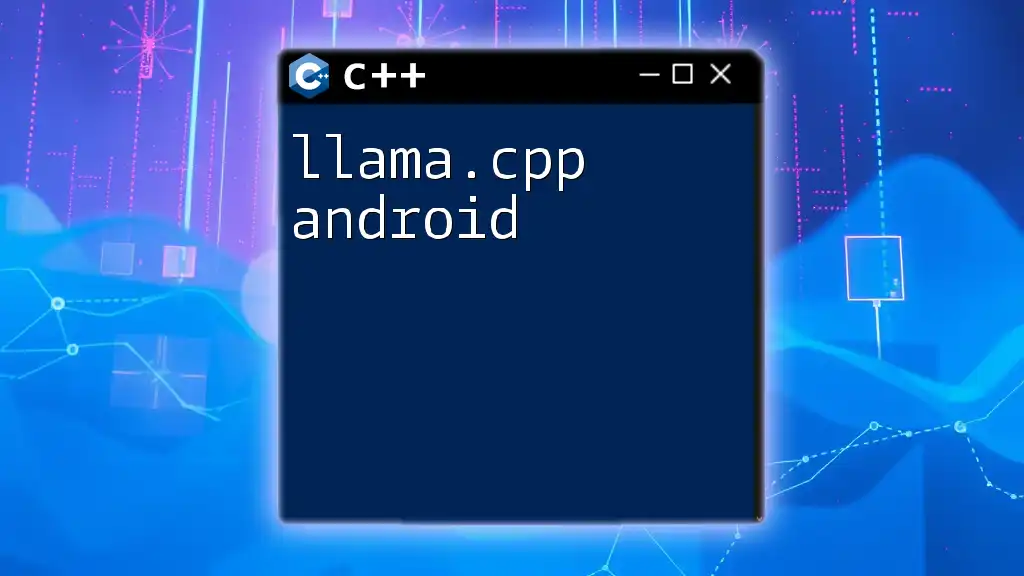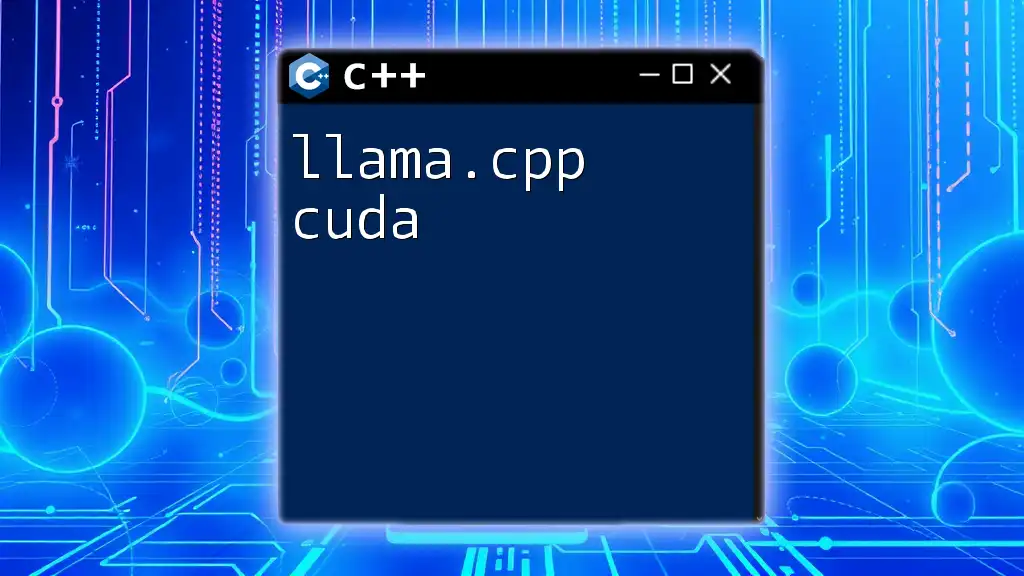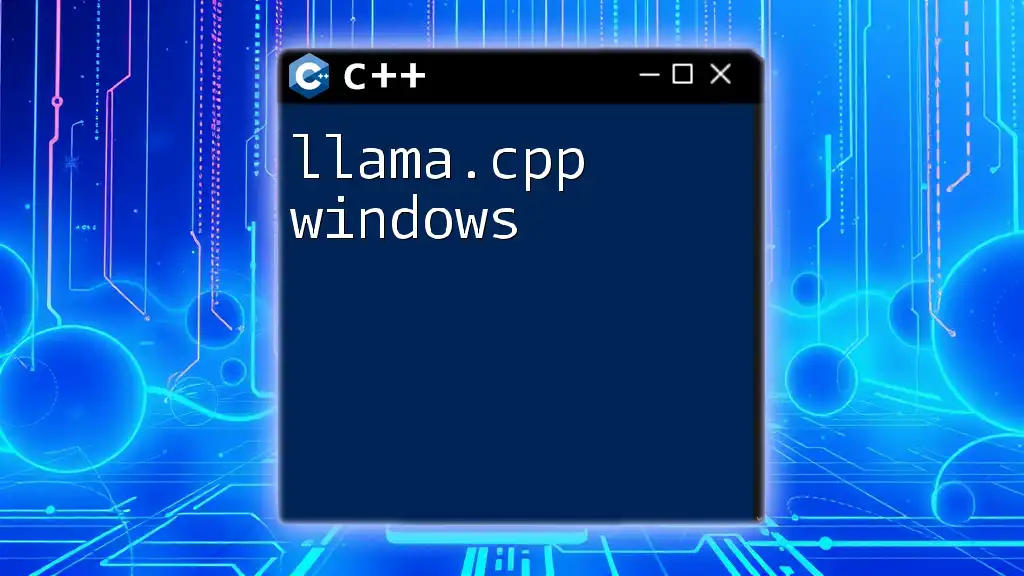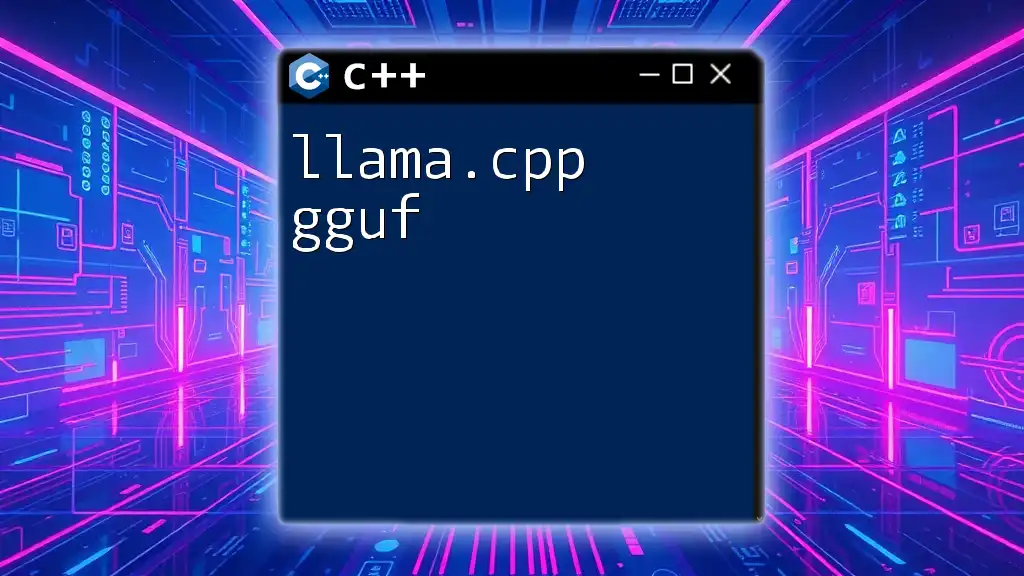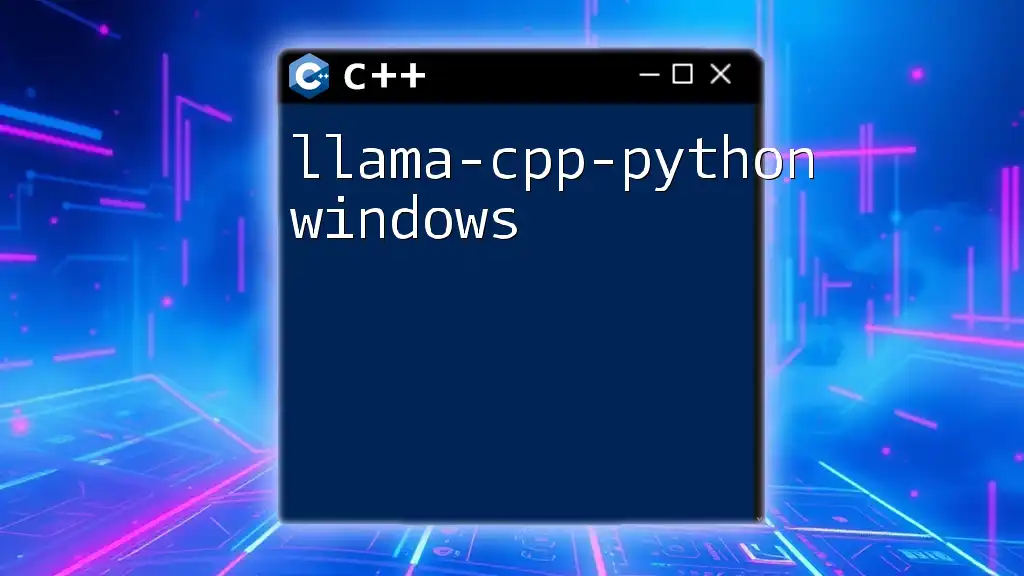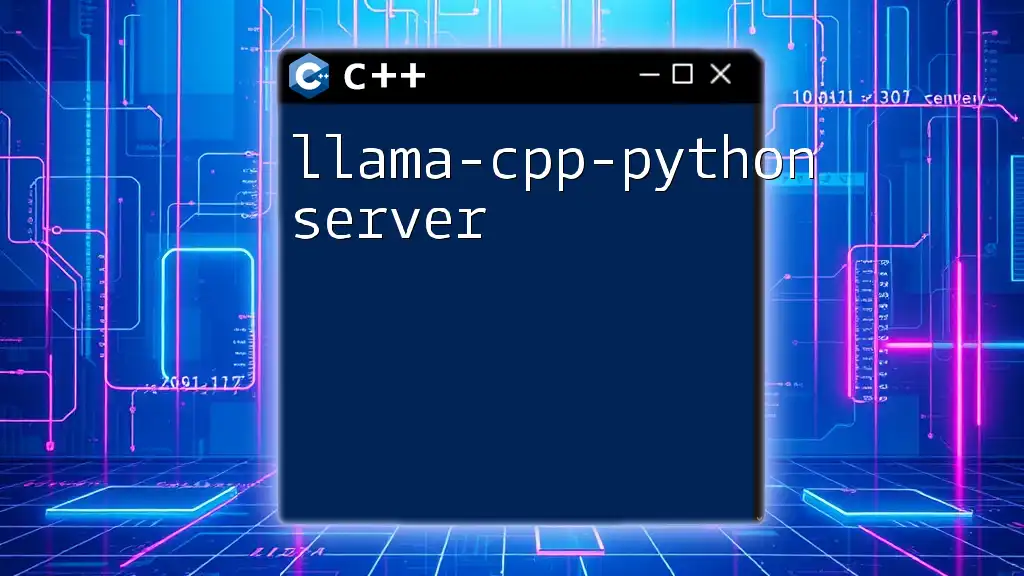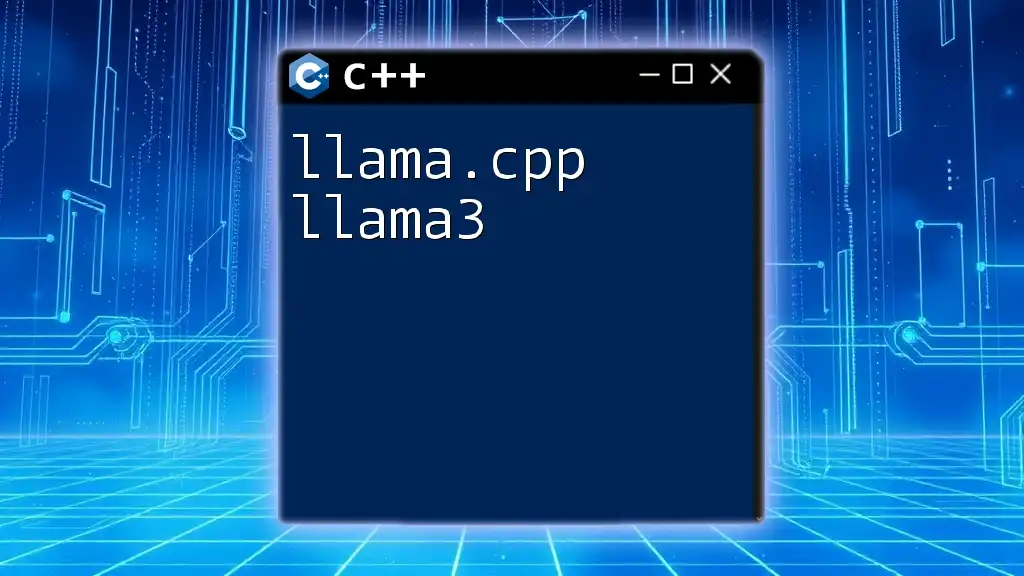The `llama_cpp` library provides an interface for using LLaMA (Large Language Model Meta AI) models in C++, enabling developers to integrate advanced language processing capabilities into their applications.
Here's a code snippet demonstrating how to initialize a LLaMA model using `llama_cpp`:
#include <llama_cpp.h>
int main() {
LlamaModel model("path/to/model");
std::string prompt = "What is the capital of France?";
std::string response = model.generate(prompt);
std::cout << response << std::endl;
return 0;
}
Understanding the Basics of `llama_cpp`
What is `llama_cpp`?
`llama_cpp` is a specialized library designed to facilitate various functionalities within C++. It enhances the ease of coding by providing efficient abstractions and utilities tailored for performance-critical applications. In the landscape of C++ libraries, `llama_cpp` stands out due to its robustness and flexibility, making it suitable for both novice and experienced programmers alike.
Installation Guide
To get started with `llama_cpp`, follow these straightforward installation instructions:
-
System Requirements: Ensure your development environment includes a supported version of C++ (C++11 or higher recommended) and a compatible compiler such as GCC or Clang.
-
Installation Steps:
- Clone the repository from GitHub:
git clone https://github.com/user/llama_cpp.git- Navigate to the project directory:
cd llama_cpp- Build the library using CMake:
mkdir build cd build cmake .. make- Finally, link against it in your project.
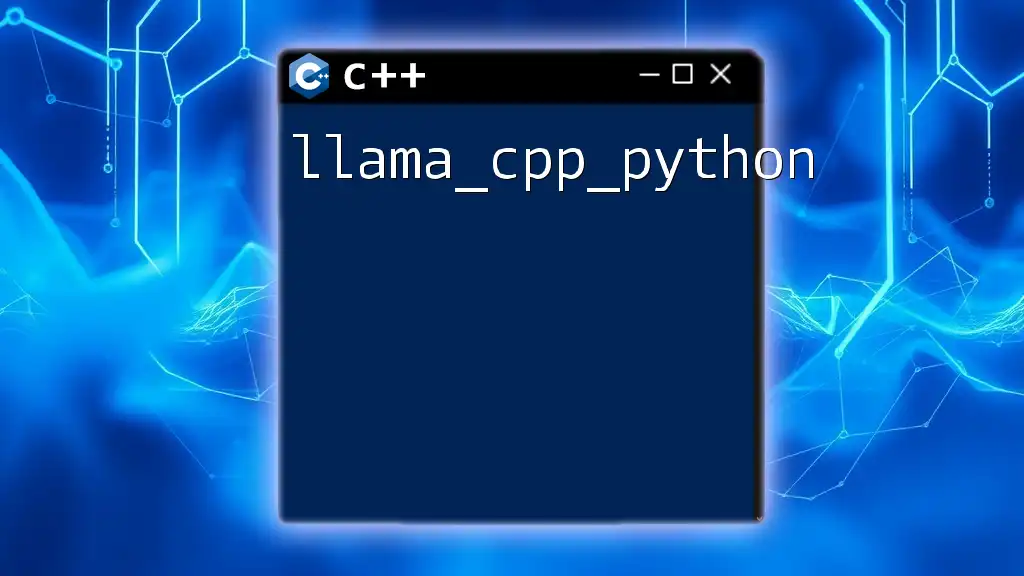
Core Features of `llama_cpp`
Key Functionalities
`llama_cpp` offers a multitude of features designed to simplify programming and enhance productivity:
- Dynamic Memory Management: Effectively handle dynamic memory with ease, allowing programmers to focus on logic rather than boilerplate code.
- Performance Enhancements: Built-in optimization techniques that allow for faster execution without compromising code readability.
- Extensive Documentation: Comprehensive guides and examples that ease the learning curve and facilitate timely implementation.
Memory Management
Understanding memory allocation is essential for any C++ programmer. With `llama_cpp`, memory handling becomes significantly more straightforward.
In `llama_cpp`, you can allocate and deallocate memory dynamically using the provided functions. Here's a simple example demonstrating dynamic memory allocation:
#include <llama_cpp.h>
void exampleFunction() {
llama_cpp::SomeObject* obj = new llama_cpp::SomeObject();
// Perform operations using obj
delete obj; // Free memory after use
}
This approach encourages proper memory management without requiring exhaustive boilerplate code typically associated with raw pointers.
Performance Optimization
To achieve optimal performance, `llama_cpp` includes built-in functions and suggestions for creating efficient algorithms. For instance, below is an example of an optimized function:
#include <llama_cpp.h>
void optimizedFunction(llama_cpp::Data& data) {
// Implementation of an optimized algorithm
data.processFast(); // Leveraging the library’s optimized processing
}
Using methods such as `processFast()` can drastically reduce execution time, allowing applications to run efficiently even under heavy load.
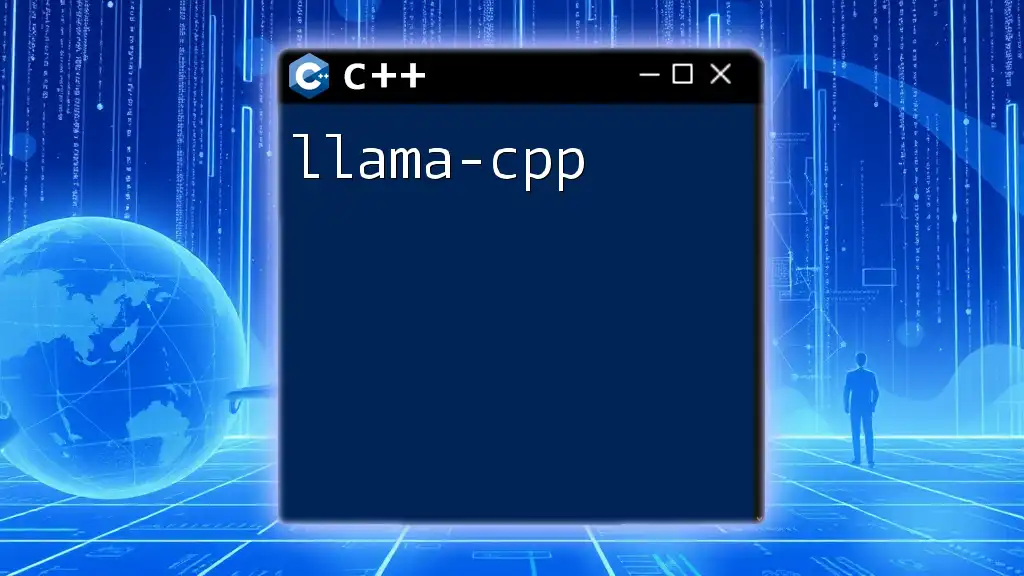
Advanced Usage of `llama_cpp`
Complex Data Structures
Advanced users of `llama_cpp` can leverage its support for complex data structures. This feature facilitates the creation, manipulation, and interaction between various data types with ease. Consider the following example demonstrating how to utilize a complex type:
#include <llama_cpp.h>
llama_cpp::ComplexType complexExample() {
llama_cpp::ComplexType cType;
cType.addElement(5); // Adding an element to the complex type
return cType; // Returning complex data for further processing
}
This flexibility allows developers to build sophisticated applications tailored to complex requirements.
Integrating `llama_cpp` with Other Libraries
One of the strengths of `llama_cpp` lies in its ability to integrate seamlessly with other libraries. This enables developers to combine functionalities from diverse sources, enhancing application capabilities. Here’s how you can combine `llama_cpp` with another hypothetical library:
#include <some_other_lib.h>
#include <llama_cpp.h>
void integratedFunction() {
llama_cpp::Data data;
some_other_lib::process(data); // Process data using the other library
}
By effectively combining libraries, you can harness a wide range of features, thus accelerating development cycles.
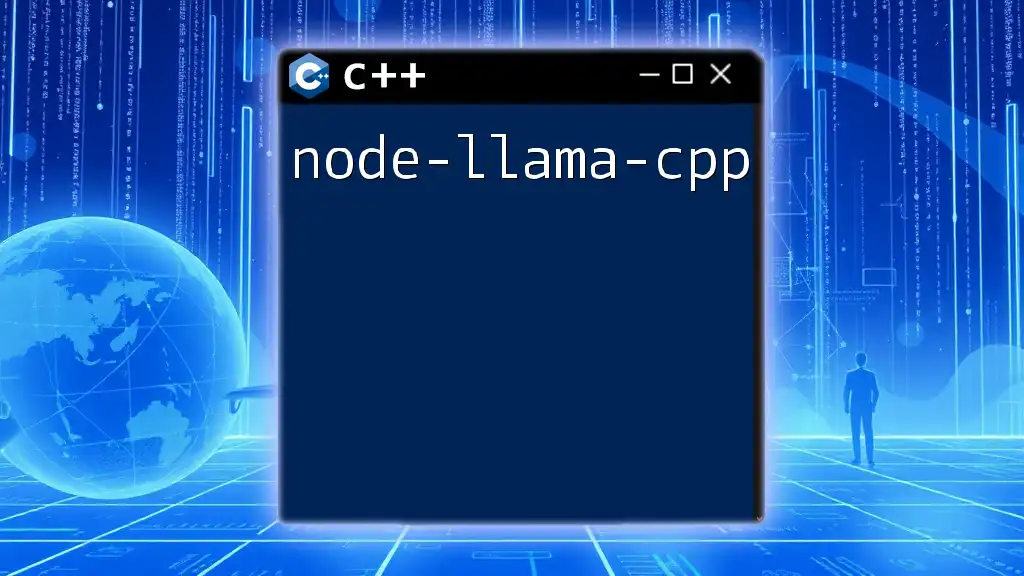
Troubleshooting Common Issues
While using `llama_cpp`, developers might encounter several common issues. It’s essential to address these hiccups efficiently to maintain productivity.
Typical barriers include configuration errors, missing dependencies, or compatibility issues with older compilers. To handle these:
- Read Error Messages Carefully: Often, error messages provide clues about what went wrong.
- Consult Documentation: The official `llama_cpp` documentation includes a FAQ section that can be invaluable in troubleshooting.
- Community Support: Engage with communities through forums for help or to share experiences.
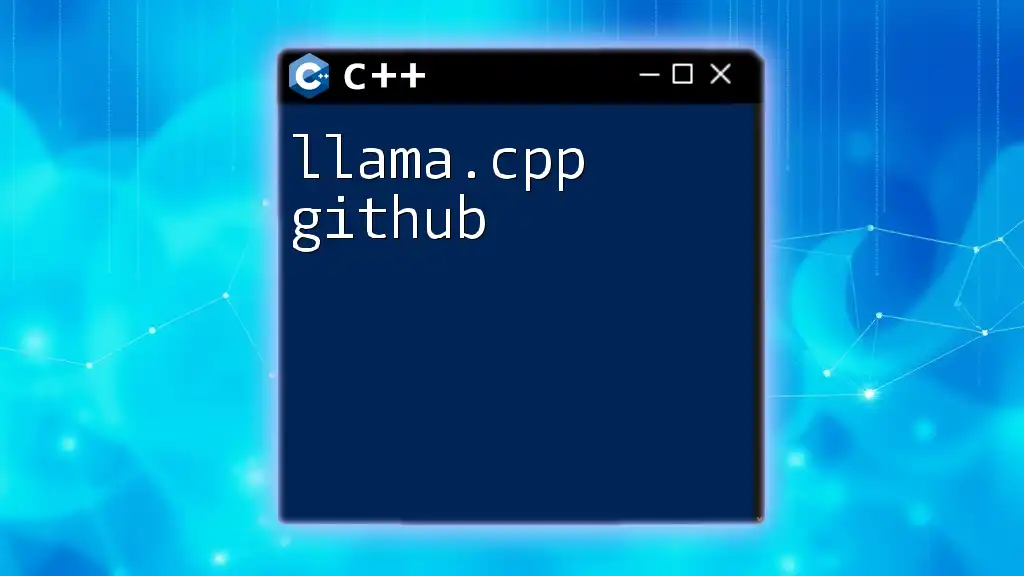
Best Practices for Using `llama_cpp`
Good coding practices promote maintainability and collaboration. When working with `llama_cpp`, consider the following best practices:
- Adhere to Coding Standards: Follow naming conventions and code structuring that encourage readability.
- Utilize Comments Wisely: Comment your code effectively to clarify complex logic.
- Version Control: Use Git or similar tools to manage changes and collaborate with others.
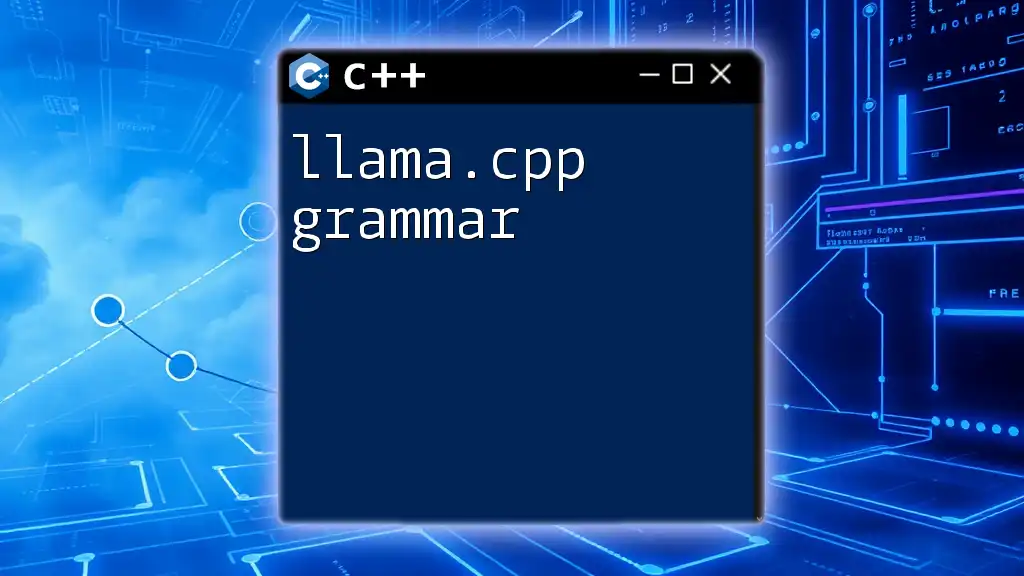
Conclusion
In summary, `llama_cpp` offers exceptional tools and functionalities tailored for C++ development. By understanding its features, optimizing performance, and applying best practices, you can significantly enhance your coding experience. The journey into mastering `llama_cpp` opens doors to efficient programming that emphasizes both performance and maintainability.
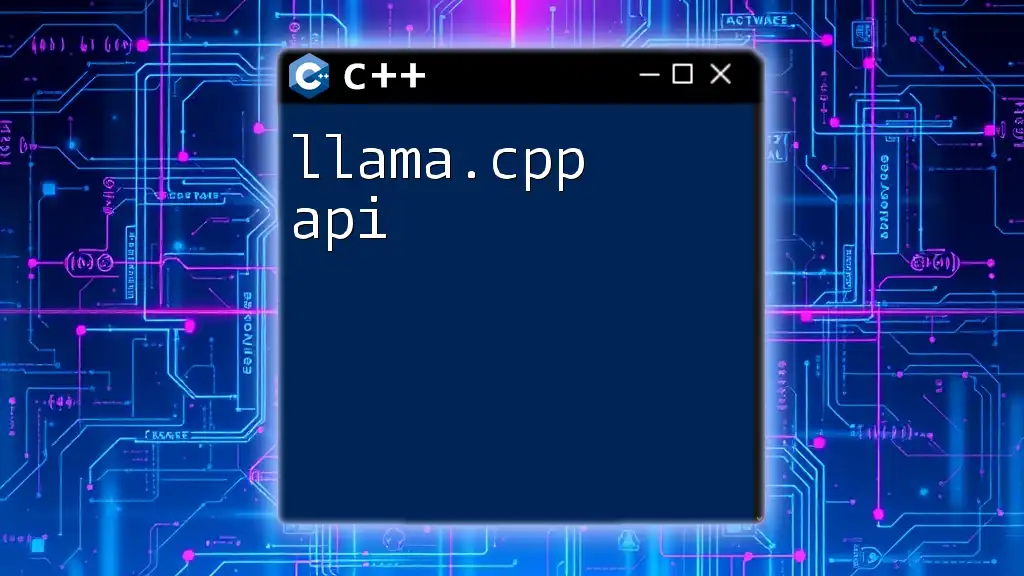
Additional Resources
To further your understanding of `llama_cpp`, make sure to explore the following:
- Official Documentation: Comprehensive guides and references for detailed learning.
- Community and Support: Engage with fellow developers in forums dedicated to `llama_cpp` where you can share knowledge, ask questions, and participate in discussions.
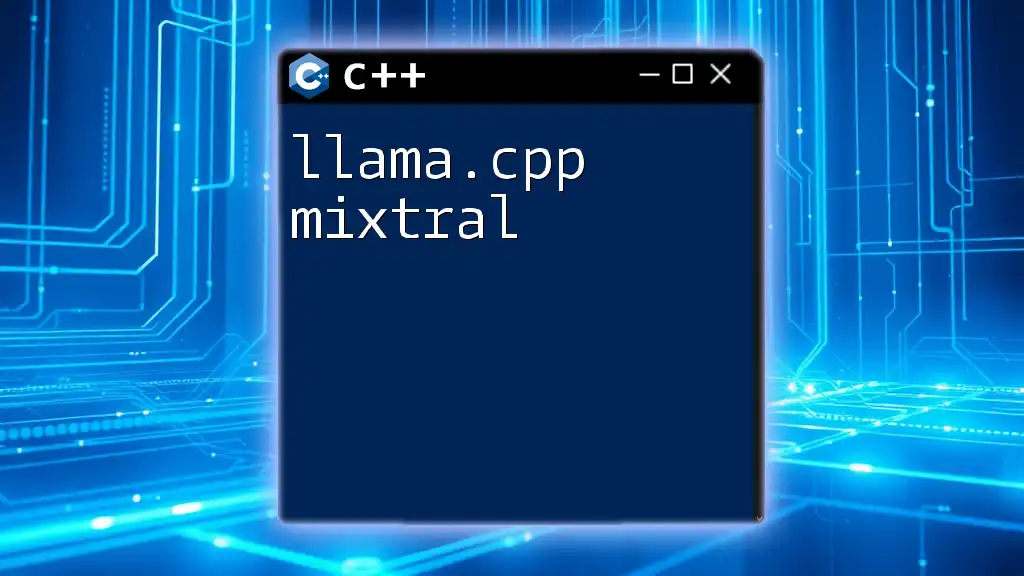
Call to Action
Consider signing up for more tutorials tailored to advance your skills with `llama_cpp` or other C++ topics. Your feedback is also welcome; share your thoughts or suggestions to help improve future resources!

